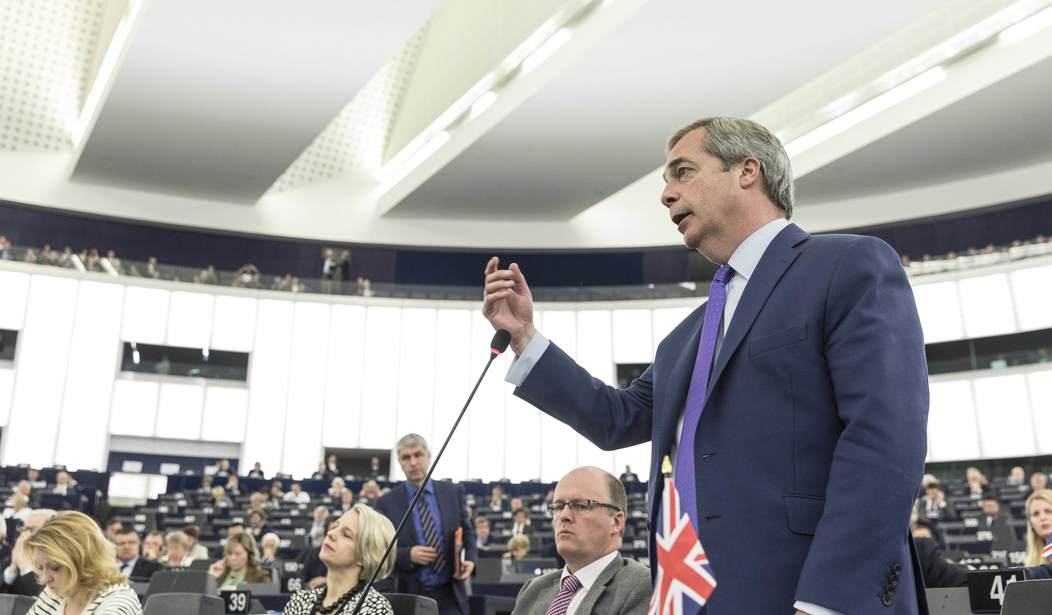WASHINGTON – The recent surge in populism across the globe – resulting in the election of Donald Trump and Britain’s exit from the European Union – was spurred by the 2008 economic crisis and ensuing dissatisfaction with liberal-leaning institutions, said experts in D.C. on Monday.
That was one of the takeaways from the Brooking Institution event discussing the rising momentum of far-right politics. The panel agreed that Trump and Brexiteers like Boris Johnson and Dominic Cummings capitalized on the desperation of the Great Recession’s victims by offering populist solutions with a nationalistic approach.
According to Treasury Department statistics, the Great Recession resulted in 8.8 million jobs lost and $19.2 trillion in lost household wealth between 2007 and 2009. Much of the loss was shouldered by blue-collar, middle- to lower-class Americans. Nicholas Eberstadt, an economist at the American Enterprise Institute, said the crisis has created an overwhelming suspicion that the current economic system is severely out of balance.
“One of the factors that co-aligns with the rise of populism in the U.S. has been the decline of mobility, the decline of geographic mobility … the feeling that people are sort of stuck in a system that isn’t working for them,” Eberstadt said. “To harp back to Bill Clinton: They’re working hard. They’re playing by the rules, but it isn’t working for them.”
He added that American politicians have increasingly receded into a bubble that further separates them from the general public.
One of the major culprits in a system that the marginalized see as rigged is gerrymandering, according to Constanze Stelzenmüller, an international affairs expert from Germany. She said she doesn’t understand how it’s unclear to America that political preference for the elite is destroying democracy. Moderator David Wessel asked the panel if democratic decline will force elites to deal with the underlying issues.
“I have mixed feelings about this,” Stelzenmüller said. “On the one hand, it’s true that we can see silver linings. It’s true that we can see people turning around, reappraising the circumstances in which they live, understanding that we’re living through the biggest test to representative democracy of our lifetimes, and understanding that every one of us has a role in us all passing that test. …The test itself and the fact that we seem to be needing it does make me nervous. The degree of our complacency makes me nervous.”
Gérard Araud, France’s ambassador to the U.S. since 2014 who rounded out the panel, said it’s not a coincidence that major populist movements followed both the Great Recession and the Great Depression. He said he’s visited with American companies to understand how organizations are handling the impacts of globalization and computerization. On Monday, he described a conversation about driverless vehicles.
“What are you going to do with the truck drivers? Retraining. Retraining at 45 years old, a truck driver? Really, that’s a real question,” he said. “We have seen the end of, you know, the industrial society. We have gone from an industrial society to a service economy, which actually has a lot of consequences of the workers. Their job is their stable.”
The question moving forward, he said, will be: Do we maintain the status quo of free trade, while retraining the victims, or do we redefine a citizen-friendly system of free trade?
Stelzenmüller said the U.S. and the EU have been in denial about the issues that have been corroding democracy. She added that fake news and Russian propaganda have been exploiting existing vulnerabilities within economic systems in the U.S.
“Something has to be done about that, and the only way to do it is through legislation and the attentions of the Supreme Court,” Stelzenmüller said. “This is not something resolved at the political level.”
In Europe, she said, governments have to address what she described as a halfway house situation with European integration — the desire for nations to turn inward like Britain.
“Otherwise, it will serve to deepen an existing sense of powerlessness and inequality and a lack of democracy among Europeans, which will then continue to drive people into the arms of the populists,” she said.
She also opined that the Brexit campaign was wildly overpromised, and that the tragedy of the vote is that the importance of EU cohesion and subsidies was largely ignored.
“This overpromising, and this peddling of a notion of a sort of return to a self-contained nation, self-efficient and a sort of newly muscular state was irresponsible,” she said. “Because that isn’t how state power works these days.”









Join the conversation as a VIP Member